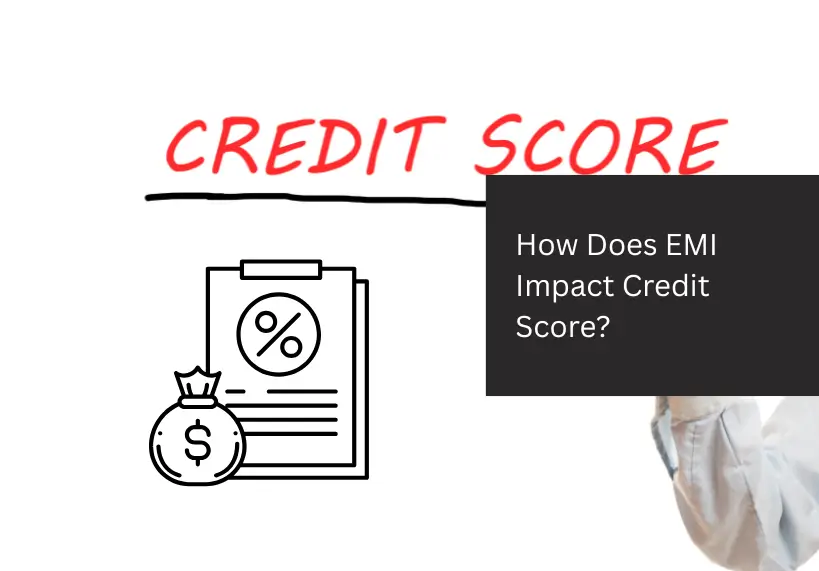
A credit bureau is a company that collects your credit history, which is used to generate a credit report. This report helps lenders determine whether you’re a good borrower. Let’s consider an example – Suppose you want to borrow money from a friend. Before lending it to you, your friend might ask other friends about your borrowing habits. If you’ve always paid back on time, your friend will feel confident lending you the money. If not, they might hesitate.
Similarly, banks and non-banking finance companies (NBFCs) check your credit history to see if you have managed money well in the past before giving you a personal loan or a credit card. The organizations that keep track of this history are credit bureaus.
Let’s learn more about credit bureaus, how they work, and India’s top credit bureaus.
What is a Credit Bureau?
A credit bureau is an agency that collects information on how people manage their money, especially when it is borrowed. This information includes whether they pay their bills on time, how much they owe, and how often they apply for new credit.
The credit bureau gathers this data from banks, credit card companies, and other financial institutions. By organizing and analyzing this data, credit bureaus create credit reports and calculate credit scores.
These reports and scores help lenders determine whether to lend you money or offer you a credit card.
What is a Credit Score?
A credit score is a 3-digit number ranging from 300 to 900, which shows how well you manage your money and repay what you owe.
Your credit score is like a financial report card. A high score shows lenders you’re a responsible borrower, making loan and credit card approvals easier. Conversely, missed payments or high debt can lower your score, raising a red flag for lenders.
List of Top Credit Bureaus in India
In India, there are 4 credit bureaus that help banks and financial institutions make decisions about lending money. These are:
- TransUnion CIBIL
- Equifax
- Experian
- CRIF High Mark
Let’s take a closer look at each of them.
TransUnion CIBIL
TransUnion CIBIL, most commonly known as CIBIL, is India’s most well-known credit bureau. It was established in 2000 and has been a major player in the credit industry since then. CIBIL collects and maintains records of individuals’ and businesses’ payments related to loans and credit cards.
While applying for a loan or credit card, the lender will often check your CIBIL score. A high CIBIL score (usually above 700) makes getting loans and better interest rates easier. CIBIL also provides credit reports that contain a detailed summary of your credit history.
Equifax
Equifax, a global credit bureau founded in 2010, provides credit reports and scores for individuals and businesses. It gathers information from various sources and compiles it into reports, allowing lenders to assess the financial health of potential borrowers. Additionally, Equifax offers risk management and fraud prevention services to help businesses protect themselves from financial losses.
Experian
Experian is a global credit bureau that began operating in India in 2010. It collects and analyzes credit information to create credit reports and scores for individuals and businesses.
Experian provides detailed credit reports that help lenders evaluate the creditworthiness of borrowers. They also offer services like fraud detection and credit risk assessment.
CRIF High Mark
CRIF High Mark is another major credit bureau in India. Established in 2007, it offers a wide range of credit information services and collects data on individuals and businesses to create credit reports and scores. CRIF High Mark is known for its comprehensive credit reports and analytics.
How do the Credit Bureaus in India Work?
Credit bureaus in India collect and analyze financial data from different sources. Here’s how they operate:
Data Collection: Credit bureaus gather information from banks, credit card companies, and other lenders. This information includes details about loans, credit cards, payment histories, and outstanding debts.
Data Processing: The collected data is processed and organized to create a credit report for each individual and business. This report includes their credit history, current debts, and payment behavior.
Credit Scoring: Credit bureaus calculate credit scores using information from credit reports. This score is based on factors like payment history, credit utilization (how much of the available credit you’re using), length of credit history, and types of credit accounts.
Report Generation: Credit bureaus generate credit reports and scores that lenders, individuals, and businesses can access. These reports help lenders decide whether to approve or reject loan applications.
Updating Information: Credit bureaus regularly update the information in their databases. When you pay off a loan or miss a payment, this information is sent to the credit bureau and is reflected in your credit report.
Conclusion
Credit bureaus play a major role in the financial system, as they help lenders decide who to trust with loans and credit. The top credit bureaus in India are TransUnion CIBIL, Equifax, Experian, and CRIF High Mark. These organizations collect and analyze data to create credit reports and scores that reflect how well individuals and businesses manage their money.
Understanding how credit bureaus work can help you make better financial decisions. You can maintain a good credit score by paying your bills on time, keeping your debt low, and using credit responsibly. A high credit score can bring better financial opportunities, like lower interest rates on loans and higher credit limits on credit cards.
So, just like you would handle your money carefully to build trust with your friends, take care of your finances to maintain a good credit score. It will help you in the long run and make accessing funds in times of need a lot easier!
Frequently Asked Questions
How do credit bureaus protect my information?
Credit bureaus use various security measures, including encryption and secure databases, to protect your personal and financial information.
How often is my credit score updated?
Your credit score is updated regularly, usually monthly, as credit bureaus receive new information from lenders.
Can errors on my credit report be corrected?
Yes, if you find errors on your credit report, you can dispute them with the credit bureau to correct them.
How does a credit bureau calculate my credit score?
Credit bureaus use algorithms that consider various factors, such as payment history, credit utilization, length of credit history, types of credit, and recent inquiries, to calculate your credit score.








